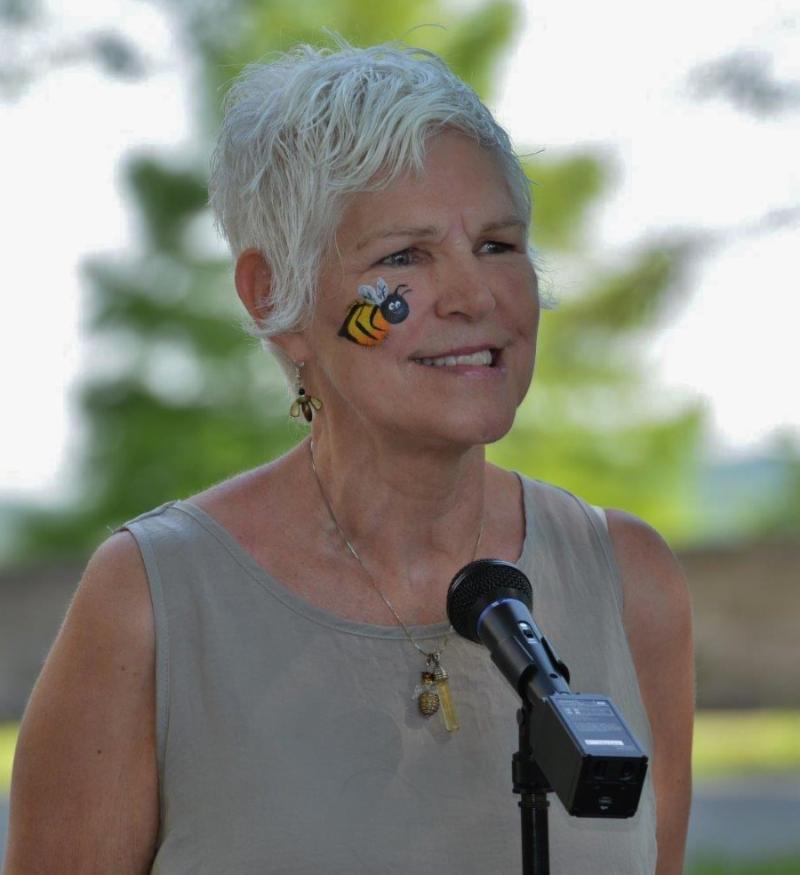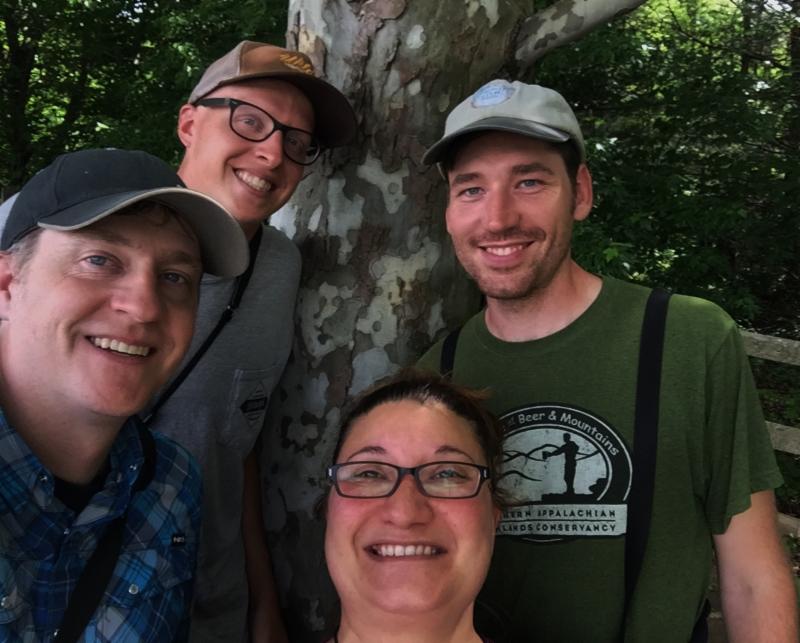|
Sat, June 16, 8am
Swannanoa Valley Birdwalk
Tues, June 19, 7pm
EMAS Program
Reuter Center, UNCAsheville
Sat, July 7, 8am
Beaver Lake Birdwalk
Sat, July 14, 8am
Jackson Park Birdwalk
Sat, July 21, 8am
Swannanoa Valley Birdwalk.
|
For the latest schedule and any changes:
|
|
|
Please Act Now to Save America's Most Important Bird Law
The nation's most important bird protection law is under attack and we need to act now to help save it. This law, the Migratory Bird Treaty Act, has been effective for over 100 years in saving the lives of millions of birds. In December 2017, Daniel Jorjani, Principal Deputy Solicitor at the Department of the Interior, issued a new legal opinion on the Migratory Bird Treaty Act which would free industries from liability even if their actions resulted in the killing of thousands of birds such as in the Deepwater Horizon disaster. New legislation in the House also assails the MBTA.
Last week, the National Audubon Society and other conservation organizations filed a lawsuit against the U.S. Department of the Interior to defend the law against the administration's assault on bird protection. We hope the lawsuit will be effective, but we need to voice our support for the protection the MBTA affords birds.
The Elisha Mitchell Audubon Society stands behind Audubon's fight to safeguard this law and protect threatened birds. Please send a letter on your own or click here to send a message via Audubon to Congress and Interior Secretary Ryan Zinke. Please join with us in speaking out!
Thank you,
The Members of the EMAS Board
|
 "The Birds & the Bees:
"The Birds & the Bees:
Why Pollinators Matter" Phyllis Stiles
|
Pollinators are
 |
|
 |
Northern Parula by Alan Lenk |
responsible for the reproduction of over 85% of the world's flowering plants, including more than two-thirds of the world's crop species. Pollinating moths and butterflies supply caterpillars fed by adult birds to their young. For seed-eating bird species, there would be few seeds available without pollinators. There are hundreds of thousands of species of pollinators that make our planet so botanically diverse. Unfortunately, the United Nations has reported that forty percent of insect pollinator species are at risk of extinction. The loss of pollinator species threatens agricultural crops, plants, birds, and other fauna.
Homeowners and concerned citizens can help. Pollinator conservation literally starts at home. Ornamental landscapes, gardens, businesses and corporate campuses, and even landscaped roadsides, are key to pollinator survival. At this program, learn how Bee City USA, through their broad-based educational efforts, is galvanizing communities to take action with the goal of shifting our landscaping paradigms to locally native species and using fewer, if any, chemicals.
 Our speaker, Phyllis Stiles, is founder and director of the national organization
Bee City USA. Ms. Stiles will explain what certified Bee City USA affiliates are doing to reverse pollinator declines. An Asheville resident since the 1970s, Ms. Stiles has spent her career serving communities and non-profit organizations in fields ranging from natural resource and farmland protection to civic leadership development. She was campaign director for Blue Ridge Forever's successful 50,000-acre land protection campaign. The North American Pollinator Protection Campaign named her the 2015 Pollinator Advocate of the Year
EMAS programs are free and open to the public.
|
"In their eggs
 |
|
 |
Golden-crowned Kinglet |
the birds center their whole existence. They work unceasingly and intelligently for a place where they can lay them, and guard them with their lives. Thus, the nest, aside from its expression of ingenuity, skill, and patience, becomes an exponent of character." Howard Jones, Illustrations of the Nest and Eggs of Birds of Ohio
One breeding task performed by all songbirds, except the parasitic Brownheaded Cowbird, is that of building and maintaining a nest. Although done each year by most passerines, it may be the least observed activity of birds. Some people have an uncanny ability to find bird nests. It does require a bit of patience and being able to sit quietly and observe what is going on around you. For those who haven't found a bird's nest but would like a brief introduction to nest building, follow this link.
|
 Birdathon 2018 Results!
Birdathon 2018 Results!
|
The three EMAS Birdathon teams have battled or rather, birded it out, and we have a winner! The teams all gave it their best, birding for one 24-hour (or less) period of trying to see or hear as many bird species as possible. Having a plan, stamina, and in-depth knowledge of birds and bird songs is essential. It also helps to temporarily survive on junk food eaten while driving madly across the mountains. It's all great fun and for the worthy conservation cause of helping Golden-winged Warblers, Wood Thrush, and other neotropical migratory birds thrive.
The teams have done their part and now they ask that you do yours. The Birdathon cannot be successful without donations from you! Please follow this link to the Birdathon flyer, write a check to EMAS and send to EMAS P.O. Box 18711, Asheville, NC 28814. You can also donate via PayPal at the EMAS website, but please note online that it's for the Birdathon.
 For the third year in a row, the winning team is the Peregrines with 133 species. The Beaver Lake Bluebirds came in second with 116 species and the Not-So-Common Loons were close behind with 110 species. Read the exciting tale of their big days at this link. Our congratulations to the Peregrine's team of great birders! For the third year in a row, the winning team is the Peregrines with 133 species. The Beaver Lake Bluebirds came in second with 116 species and the Not-So-Common Loons were close behind with 110 species. Read the exciting tale of their big days at this link. Our congratulations to the Peregrine's team of great birders! |
|
Invasion of the Golden Swamp Warbler
|
A dart of gold
 |
|
 |
"Golden Swamp Warbler"
by Simon Thompson
|
flashes through the understory, a loud, ringing song breaks the still air, and a small, luminous bird appears on a bare twig hanging over the water. A wonderful sight! Who doesn't love the brightly-colored Prothonotary Warbler?
Originally called the "Golden Swamp Warbler" by John James Audubon, the Prothonotary was unfortunately already named by the Dutch naturalist, Pieter Boddaert, for a group of Catholic Church notaries who wore yellow hoods! We are now stuck with a rather uninteresting name for this gorgeous bird. I suggest we start a campaign to rename this species to its more appropriate and evocative name. After all, it's golden and lives in swamps - perfect!
Simon RB Thompson
Ventures Birding Tours
|
 Nominations for Nominations for
EMAS Board of Directors
|
The EMAS Nominating Committee is pleased to announce that they will present the following slate for vote by the membership at the June 19th meeting. Linda Walker is on the slate as Treasurer. We have two new At-large members, Cathy Walsh and Danielle Dibella-Lenaway. For the first time, we have a Student At-Large position to be filled by UNCAsheville's Kristin Black. At-large members up for re-election are: Dayna Feist, Jamie Harrelson, Monica Schwalbach, Simon Thompson, Emilie Travis, and Jay Wherley.
Please join us at the June meeting to vote on and greet the new and returning board members.
|
Text and Photos by Jay Wherley
|
|
|